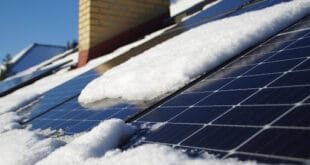– originally posted at Alternative Energy
To many people, the differences between “alternative energy,” “renewable energy,” and “clean energy,” might not be obvious. But each term is unique and has its own individual definition. These three terms are not all exactly the same.
Alternative Energy
When we speak of alternative energy, we refer to sources of usable energy that can replace conventional energy sources (usually, without undesirable side effects). The term “alternative energy” is typically used to refer to sources of energy other than nuclear energy or fossil fuels.
Throughout the course of history, “alternative energy” has referred to different things. There was a time when nuclear energy was considered an alternative to conventional energy, and was therefore called “alternative energy.” But times have changed.
These days, a form of “alternative energy” might also be renewable energy, or clean energy, or both. The terms are often interchangeable, but definitely not the same.
Renewable Energy
Renewable energy is any type of energy which comes from renewable natural resources, such as wind, rain, sunlight, geothermal heat, and tides. It is referred to as “renewable” because it doesn’t run out. You can always get more of it.
People have begun to turn to this type of energy due to the rising oil prices, and the prospect that we might one day deplete available sources of fossil fuels, as well as due to concerns about the adverse effects that our conventional energy sources have on the environment.
Of all the different types of renewable energy, wind power is one which is growing in its use. The number of users who have some form of wind power installed has increased, with the current worldwide capacity being about 100 GW.
Clean Energy
“Clean energy” is simply any form of energy which is created with clean, harmless, and non-polluting methods.
Most renewable energy sources are also clean energy sources. But not all.
One such example is geothermal power. It may be a renewable energy source, but some geothermal energy processes can be harmful to the environment. Therefore, this is not always a clean energy. However there are also other forms of geothermal energy which are harmless and clean.
Clean energy makes the less impact on the environment than our current conventional energy sources do. It creates an insignificant amount of carbon dioxide, and its use can reduce the speed of global warming – or global pollution.
—
As you can see, these three terms: alternative energy, renewable energy, and clean energy, are very similar. But it’s important to know that there are differences.
There are many steps which can be taken to help reduce greenhouse gases in our atmosphere. Some of these steps can be taken in your own home. Many clean energy solutions can can be easily installed, and some kits or DIY systems are quite affordable.
It is important to start making changes now; if we want to save our planet for our children, for the flora and fauna of the Earth, and for the future of mankind.
Carbon emissions, and other forms of pollution are not only created by heavy industrial factories. They are created by the common household as well. Energy efficiency has become an important aspect of our lives. If we start to change our habits on an individual level, others will begin to follow our example, and a real change can occur world-wide.
Clean alternative energy systems for the home can also save one a lot of money on electricity in the long-run, but it can be expensive to have the systems installed by a commercial company. It’s quite possible to build your own wind or solar power system at home, however, for a fraction of the cost. And advanced technical knowledge or skills are not a requirement. There are several good, popular guides available which will teach you exactly how to do this, and give you step-by-step instructions.
For more information, on some of the best-selling DIY Renewable Energy guides available, please visit Best-Selling DIY Wind & Solar Guides.
 Alternative Energy HQ solar power for homes, wind energy, and bio fuel issues
Alternative Energy HQ solar power for homes, wind energy, and bio fuel issues







Thank you, good article. We often speak about solar energy and even don’t understant meaning of this terms.